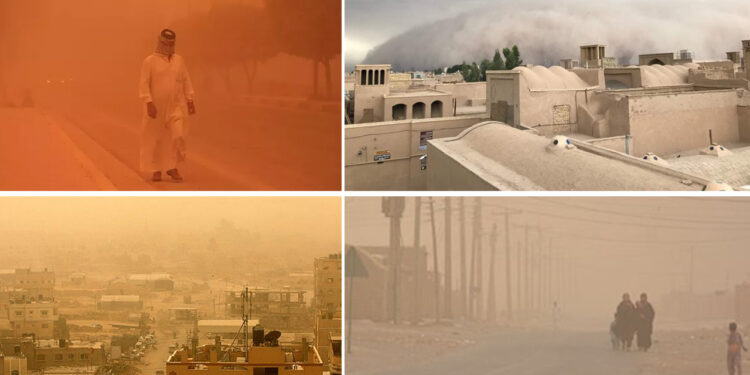
TEHRAN, Sept 22, 2023 (BSS/AFP) - As least three people have died and more than 1,300 others have required medical attention as dust storms sweep across Iran's southeastern Sistan-Baluchistan province, state media reported Friday.
Such storms have become more frequent in recent years in Iran's south as wetlands are drying up at an increasingly alarming rate, spurring regional water disputes.
Official news agency IRNA quoted the province's crisis management chief, Majid Mohebi, as saying three people "died in accidents caused by reduced visibility" this week.
Over the past three days "1,346 people... have sought medical assistance from hospitals and medical centres", Mohebi added.
They are residents of five adjacent towns in Sistan-Baluchistan near the border with Afghanistan, according to Mohebi.
He said the most common problems were respiratory, heart and eye ailments.
A forecast issued by the regional meteorological centre predicted that strong winds and dust storms would continue for several days.
Dust and sandstorms have always affected the Middle East but have become more intense and more frequent in recent years.
Experts associate this trend with overgrazing and deforestation, and overuse of river water.
Reduced water flow in the Helmand river has led to diplomatic tensions between Iran and neighbouring Afghanistan, which share the waterway.
Tehran accuses an upstream dam built by Afghanistan of restricting the flow into a lake that straddles their common border, while Kabul has blamed climatic factors for the reduced river volumes.
Sistan-Baluchistan, hit by a severe heatwave in late July and early August, has long faced water shortages.
IRNA reported last month that around 1,000 people had received hospital treatment over several days because of rising temperatures and dust storms.
Iran, with a population of more than 85 million, is among the countries most vulnerable to climate change and the rise in global temperatures.
It has also endured repeated droughts as well as regular flooding, a phenomenon made worse when torrential rain falls on sun-baked earth.